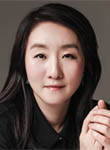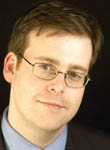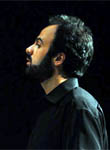2015 Sejong Music Composition Competition
Judges
Geonyong Lee | Shinuh Lee | David Ludwig | Stratis Minakakis | Arlene Sierra

Geonyong Lee was born in Pyongannam-do, Korea 1947 as fourth son of a pastor, who possessed high attainments in music. He started to compose songs since his age twelve. Lee played oboe in school band in Seoul Middle School. He studied composition with Dal-Sung Kim at Seoul High School of Music and Arts and with Sung-Jae Lee at Seoul National University. 1976 he went to Frankfurt am Main, Germany and studied composition with Heinz Werner Zimmermann at Frankfurter Musikhochschule. After the study in Germany he returned to Korea and taught composition in Hyosung Woman's University and in Seoul National University. From 1992 he is teaching composition in the School of Music, Korea National University of Arts, where he served as the president 2002 to 2006.
Though he studied mainly European modern music, he tried to find his own style in harmonizing Korean traditional music and western contemporary music. He is one of the pioneers in the use of Korean traditional music idiom in is musical language. The series of chamber music, Song in the Dusk I to VII, are examples of this tendency.
He also recognized as a successful composer for Korean traditional instruments. He composed many solo pieces for Kayageum, for Komungo and for Haegeum. Variations on Hanobaeknyun for Kayageum and Haegeum Garak are ones of most beloved repertories by players. He has written a lot of vocal music in various genre from art-song to opera. He is known as a composer with profound understanding in literature. (When he was university student, he deeply involved with novel and theatre. He wrote short stories, one of which won the prize of a newspaper, and acted many roles of drama.) Song Collection If we were water-flow, Cantata Song of Lazarus and Behold the flower, Passion Passion of Jesus Christ and Opera Spring Spring and A Little Monk are some of examples of many works of this area.

Shinuh Lee‘s career as a composer started when her trio Spacewas selected at the ISCM World Music Days 1991 in Zurich. Lee studied composition with Sukhi Kang at Seoul National University and later with Michael Finnissy at the Royal Academy of Music in London. Analogyfor Oboe and Ensemble written in her first year at the R.A.M. won the Royal Philharmonic Society Prize for Composers 1992, and her other works were also selected in Musical Times Composers’ Competition, Cornelius Cardew Composition Prize and Gaudeamus International Composers’ Competition consecutively and became known to Britain and Europe. In 1997, her orchestral piece Psalm 20, based on researches on ancient Hebrew music and the book Psalms, was selected in Leonard Bernstein International Jerusalem Composing Competition and premiered by Jerusalem Symphony Orchestra and its revised version was premiered by BBC Philharmonic Orchestra at the ISCM World Music Days 1998 in Manchester.
Including Space, most of her initial works composed during her stay in Britain reflects acoustic and phenomenal tendency of late 20th century modern music in Europe. However, at her turning point of life Psalm 20, another tendency pointing to a very different direction emerges. Her works composed after she came back to Korea, including Invisible Hand (2000/2002), Song of Joy (2001/2003), An Open Door (2004) shows that Lee’s musical goal transiting from acoustic, phenomenal tendency of European modern music to humanitarian and religious themes such as human mind and spirit, sin and salvation.
This change of tendency becomes intensified in her later works. In 2006, her Choral Fantasy manifests her will to explore issues of human sin and salvation through music in a profound way. Comfort, comfort my people, consisting of ten movements, deals with biblical messages of Isaiah and Romans, and these are executed by various experimental techniques and styles including a quote of Bach Chorale juxtaposing tonal, modal and atonal transformations of Lee’s own chorale melody, a total-serial transformation, and poly-chordal and poly-stylistic approaches. This work was tried in a couple of different editions and genre, with its chamber music version performed at Kumho Art hall in 2008. Her The Screwtape Letters with light and installation was performed at the MoA of SNU in 2009, and with the American performance tour and New York Carnegie Hall performance in 2013 & 2014 accompanied by Pianist Hyojung Huh, the journey of various attempts was completed. This work was published as Piano album with No. 2 The Collar (2013) and No. 3 Alleluia (2010/2013) in Studio 2021 edition in 2013 and also in Dux label record. Her first Violin Sonata Psalm Sonatawas also released by Dux label record in 2014.
Shinuh Lee’s work is being performed by many soloists, ensembles, and symphony orchestras. Her clarinet concerto commissioned by Seoul International Music Festival was premiered by Michel Lethiec and Korean Chamber Ensemble conducted by Grzegorz Nowak. Lamentfor clarinet and string quartet was also premiered by Michel Lethiec and Ensemble Opus at Casals Festival in France. In 2014 & 2015, Lee was also invited for a composition faculty of the Young Artists Summer Program of the Curtis Institute of Music, and she was also commissioned a piece for semifinalists of Seoul International Music Competition in 2011 & 2015.
She obtained Dip. RAM from Royal Academy of Music, and M.Mus and D.Phil from University of London and Sussex University respectively. She was appointed as a Professor in composition at College of Music, Seoul National University and has taught composition and music analysis. She has worked as a music director to Studio 2021 since 2003.

David Ludwig is “a composer with something urgent to say” (Philadelphia Inquirer). His music has been described as “arresting and dramatically hued” (The New York Times) as well as “supercharged with electrical energy and raw emotion” (Fanfare). In 2013 his choral work, “The New Colossus,” was selected to open the private prayer service for President Obama and his cabinet at his second inauguration. Recently, NPR Music selected him as one of the Top 100 Composers Under Forty in the world.
Ludwig has written for many prominent artists, including soloists Jonathan Biss and Jennifer Koh, ensembles like eighth blackbird and ECCO, and orchestras including the Philadelphia, Minnesota, and National Symphonies. This season includes commissions and performances with the Dover and Borromeo quartets, the Kalichstein-Laredo-Robinson Trio, the Pittsburgh Symphony, and a six-orchestra consortium commission of a new violin concerto for Bella Hristova
An award-winning film composer, Ludwig recently scored Michael Almareyda’s adaptation of Shakespeare’s Cymbeline, produced by Anthony Katagas (Twelve Years a Slave) and starring Ed Harris, Ethan Hawke, Milla Jovovich, and Dakota Johnson.
Residencies with arts institutions at home and abroad include Marlboro Music, the Gardner Museum, Music from Angel Fire, the Ravinia Steans Institute, the MacDowell and Yaddo colonies, and the Seoul University and Shanghai International Festival. Ludwig directs composition programs at the Lake Champlain Festival and the Atlantic Music Festival, and he is the artistic director of the Curtis Institute Young Artist Summer Program.
Born in Bucks County, P.A., Ludwig comes from a family lineage of musicians that includes his grandfather Rudolf Serkin and great-grandfather Adolf Busch. He holds degrees from Oberlin, The Manhattan School, Curtis, and Juilliard, as well as a PhD from the University of Pennsylvania. Ludwig is on the composition faculty of Curtis where he serves as the Dean of Artistic Programs and as the director of the 20/21 Ensemble.

Stratis Minakakis is a composer, conductor, and music theorist. His compositional interests include memory, ancient and modern Greek texts, complex symmetries, and the exploration of language.
As a composer, he has collaborated with leading performers and ensembles across Europe, North America, and Japan, including conductors Rüdiger Bohn and Donald Nally, recorder virtuoso Tosiya Suzuki, Noh performer Ryoko Aoki, the Hanatsu Mirroir ensemble, the Next Mushroom Promotion ensemble, the PRISM and Stockholm saxophone quartets, the Arditti String Quartet, The Crossing choir, Ensemble Counter)induction, and the Dolce Suono Ensemble. Upcoming projects include a new string quartet for the Diotima Quartet, a new work for the PRISM saxophone quartet and the Harry Partch Ensemble, and a new work for a cappella choir for The Crossing.
As a conductor, he has directed and coached numerous chamber music and orchestral ensembles in contemporary repertory, including works by Yorgos Adamis, Milton Babbitt, Katherine Balch, Henri Dutilleux, György Ligeti, Fabien Levy, Eric Maestri, Julien Malaussenas, John Mallia, Katarina Miljkovic, Dimitris Minakakis, Joan Arnau Pamiès, Y. A. Papaioannou, and Iannis Xenakis.
Also active in the field of music theory, his recent work focuses on analytical approaches to early Modernism and the music of Xenakis and Ligeti.
He is the recipient of numerous artistic prizes, grants, and academic awards from institutions such as the Pew Center for Arts and Heritage, Princeton University, the University of Pennsylvania, the New England Conservatory, the Takefu International Festival in Japan, the Fondation Royaumont in France, the Center for Mediterranean Music in Greece, the Greek Composers Union, and the International Society for Contemporary Music. Deeply committed to music pedagogy, he was awarded the Dean’s Award for Distinguished Teaching at the University of Pennsylvania and the prestigious Louis Krasner Award at the New England Conservatory.
He studied piano, theory, and composition at Atheneaum Conservatory (First Prize in Composition), Princeton University (Phi Beta Kappa, summa cum laude), the New England Conservatory (Toru Takemitsu Award in Composition, summa cum laude, Distinction in Performance), and the University of Pennsylvania (Nitze and Hallstead Prizes for Composition, Dean’s Scholar Award). He currently lives in Cambridge, Massachusetts and teaches Music Theory and Composition at the New England Conservatory.

An American composer based in London, Arlene Sierra writes music that takes its impetus from rich sources including military strategy and game theory, Darwinian evolution, and the natural world. The Guardian has described her work as having “its own character, in which historical and contemporary influences are fused into a highly flexible and distinctive style”, while Time Out New York has called it “spry, savage, sly and seductive.” Performers include the Tokyo Philharmonic, the London Sinfonietta, New York City Opera VOX, ICE, Psappha, Lontano, the New Juilliard Ensemble, the Schubert Ensemble, and the Benedetti-Elschenbroich-Grynyuk Trio. Important commissions include Game of Attrition – New York Philharmonic, Art of War – BBC National Orchestra of Wales, Insects in Amber – Carducci Quartet and Cheltenham Music Festival, Neruda Settings – Tanglewood Music Festival, Hand Mit Ringen – Huddersfield Music Festival, Moler – Seattle Symphony, Butterflies Remember a Mountain – Bremen Philharmonic Society, and Urban Birds – PRS New Music Biennial. Sierra gained international recognition when her first orchestral work Aquilo was awarded the 2001 Takemitsu Prize. Subsequent awards have included the Charles Ives Fellowship from the American Academy of Arts and Letters, Classical Recording Foundation Composer of the Year, and fellowships including Aspen, Aldeburgh Britten-Pears, and the MacDowell Colony. She has had the honour of Composer Portrait concerts at the Crush Room, Royal Opera House, London, the Yellow Barn Chamber Music Festival, Vermont, and Columbia University’s Miller Theatre, New York. In 2014, Sierra’s orchestral showpiece Moler was nominated for a Latin GRAMMY for Best Contemporary Classical Composition.
Her music is the subject of a series of recordings by Bridge Records. Arlene Sierra, Vol. 1, recorded by the International Contemporary Ensemble, received rave reviews internationally and was featured by NPR Classical, which described its “remarkable brilliance of color, rhythmic dexterity and playfulness.” Game of Attrition: Arlene Sierra, Vol. 2 includes world-premiere recordings of recent orchestral works performed by the BBC National Orchestra of Wales, Jac Van Steen, conductor. It has also met with critical acclaim, praised for “vividly scored, colorful works” by the New York Times and described by The Guardian as “remarkably sure-footed… quirky and individual” and “startlingly fresh and assured.”
Sierra’s catalogue ranges from song cycles Streets and Rivers and Neruda Settings to operas Faustine and Cuatro Corridos. Chamber works include the piano album Birds and Insects, two piano trios Truel and Butterflies Remember a Mountain, string quartet Insects in Amber, ensemble works Ballistae, Cicada Shell and Colmena, and a series of new scores to Maya Deren avant grade films from the 1940’s. Urban Birds, for three pianos with percussion and sampled birdsong, was featured by BBC News and has been performed at London’s South Bank Centre and at the Commonwealth Games in Glasgow.
Born in Miami to a family of New Yorkers, Arlene Sierra is a graduate of Oberlin College-Conservatory, Yale School of Music and the University of Michigan. Her principal teachers were Martin Bresnick, Michael Daugherty and Jacob Druckman; she also worked with Betsy Jolas and Dominique Troncin at Fontainebleau, and Paul-Heinz Dittrich in Berlin. At Tanglewood, Aldeburgh, and Dartington she studied with Louis Andriessen, Magnus Lindberg, Colin Matthews, and Judith Weir.
Dr Sierra is Senior Lecturer in Composition at Cardiff University School of Music, where she is the recipient of a University Research Leave Fellowship for 2015-2016. Her guest professorships and master classes have included Eastman School of Music, Bowdoin International Music Festival, Yonsei University (Seoul, South Korea), Cambridge University, and Kings College London.